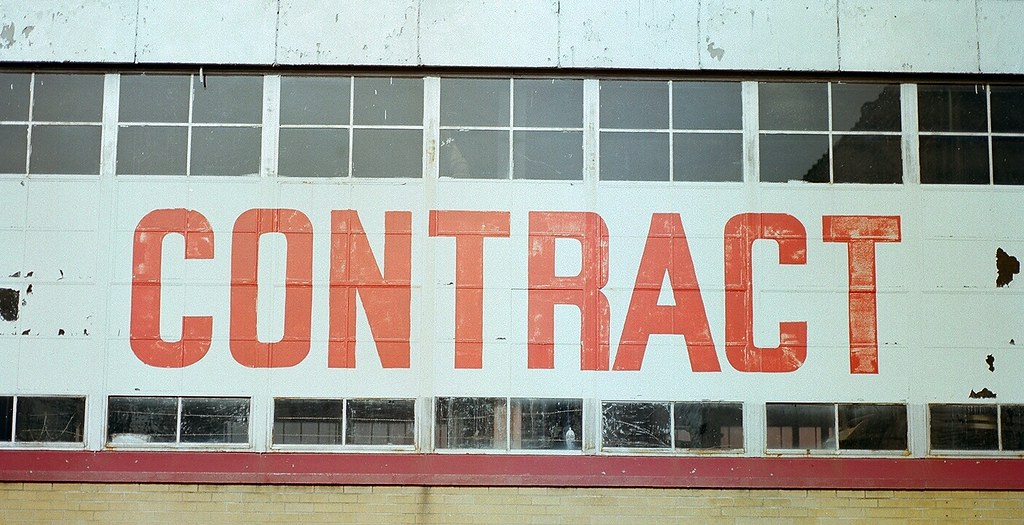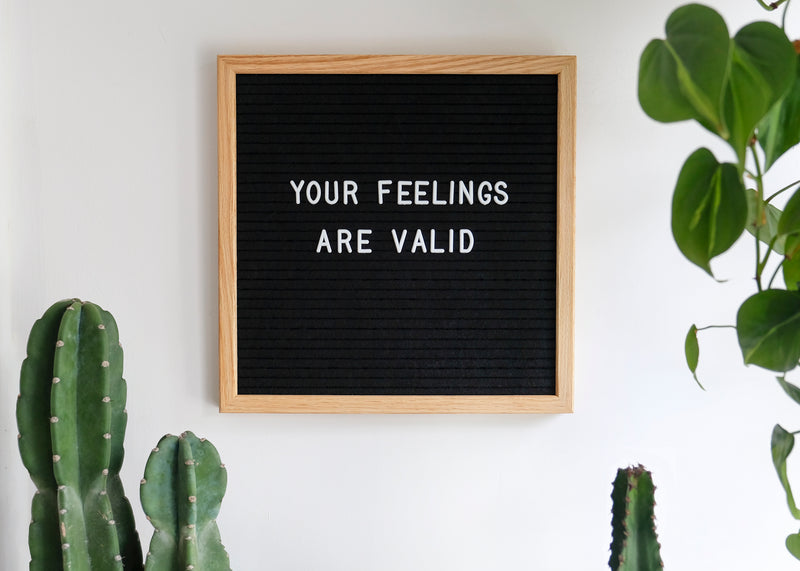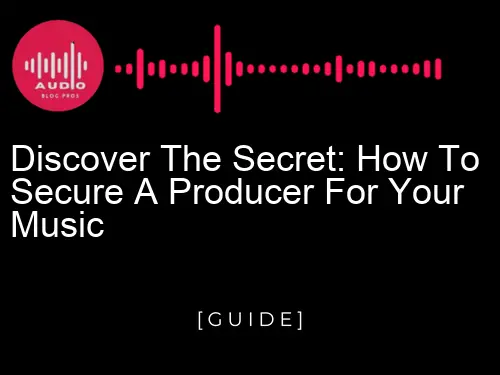Are you a musician who’s been struggling to find a producer for your music? How to Get a Producer for Your Music? Do you feel like you have the talent, but simply lack the connections to take your music to the next level? Perhaps you’ve been tirelessly sending out demos and emails, but haven’t had any luck in securing a producer. If this sounds like you, then keep reading. In this blog post, we’ll reveal the secret to landing a producer for your music. It’s not something that many people know, but once you do, it could be a game-changer for your music career. So sit tight and get ready to discover the secret that could take your music from good to great.
Table of Contents
The Importance of Having a Producer for Your Music
Having a producer for your music can make all the difference in taking your career to the next level. A good producer brings not only technical expertise but also creative input, fresh perspectives, and industry connections. With their guidance, you can refine and elevate your sound while staying true to your artistic vision.
A producer serves as a mentor who helps artists navigate through the music-making process from start to finish. They work with you on everything from songwriting and arrangement to recording techniques and mixing/mastering. Besides handling the technical aspects of production, they also provide valuable feedback on performance, instrumentation, and lyrics.
Most importantly, producers help artists translate their unique style into something that resonates with listeners worldwide. They know how to capture the essence of an artist’s brand identity in each track they produce.
Overall,a great producer is an invaluable asset for any musician who wants longevity in the ever-evolving music industry – one that is highly competitive and challenging to break into without proper support.
Steps to Take Before Seeking a Producer
Before seeking a producer, it’s important to take some initial steps to ensure that you are ready for the collaboration. Firstly, make sure you have a clear vision of what you want your music to sound like and what role you expect the producer to play in achieving this vision. This will help when communicating with potential producers.
Next, work on your skills as an artist before approaching a producer. Whether it’s songwriting or vocal delivery, honing your craft is crucial as it will enable you to contribute more effectively during the production process.
It’s also important to have a budget set aside for production costs such as studio time and hiring musicians if necessary. Having financial stability will show potential producers that you are serious about your music career and willing to invest in yourself.
Finally, research producers who have worked on similar projects within your genre and create a shortlist of those whom may be interested in working with artists at your level. Check out their portfolios online or through industry resources like All Music Guide or Discogs, read reviews from past clients/other artists they’ve worked with (if available), look into whether they’re affiliated with any professional organizations like ASCAP/BMI etc., ask trusted musicians relevant contacts for recommendations – all can provide valuable information when narrowing down which individuals might be best suited!

Finding the Right Type of Producer for Your Music Genre
When it comes to finding a producer that is right for your music, it’s important to consider their expertise and experience within your specific genre. Look at the work they have done with other artists in similar genres to yours and see if you like their sound.
Another thing to consider is whether you want someone who can help shape the direction of your music or simply bring technical skills to the table. A creative producer may not necessarily be an expert in technical aspects such as engineering, whereas a more technically-focused producer may not be able to offer much input on songwriting.
In addition, think about where you are in your career and what type of project you’re working on. Do you need someone who has worked with major label artists? Or would an independent producer with a smaller studio suit your needs better? By understanding these factors, you can narrow down potential producers that will be the best fit for both yourself and your music.

How to Create a Strong Pitch and Demo for a Producer
Creating a pitch and demo for a producer can be intimidating, but it’s an essential step in securing one. First, your demo should have high-quality recordings that showcase your musical talents. Whether you’re a singer-songwriter or part of a band, the demo must highlight your unique style and sound. Using social media to gather feedback on the demo is also recommended, as this can help identify areas where you need improvement.
Your pitch should include relevant information about yourself and why you believe a particular producer would be an excellent match for your music. Do research on the producer’s previous work and mention how their production skills align with what you want to achieve in terms of sound quality and artistic direction. Make sure to keep it concise yet impactful by highlighting key points that make you stand out from other artists.
Remember that producers receive numerous pitches all the time; therefore, making sure yours stands out is crucial. Keep working on refining both your pitch and demos until they are strong enough to grab attention when presented to potential producers in person or via email/online platforms such as LinkedIn or SoundCloud.
Networking with Industry Professionals to Attract Producers
In the music industry, it’s all about who you know. Networking with other professionals in your genre can lead to opportunities for collaborations and even landing a producer. Attend conferences, showcases, and events that cater to your niche in the industry. Connect with artists who have worked with producers before and ask if they would be willing to introduce you.
Another great resource is social media platforms like LinkedIn or Twitter where you can connect directly with producers or A&R representatives at record labels. Make sure your online presence is professional as this will likely be one of the first things a producer looks at when considering working with you.
Collaborating on projects or contributing to others’ work can help get your name out there which may lead potential producers coming directly to you. Don’t underestimate the power of building authentic relationships within the industry – having friends in high places can only benefit you!
Working with Independent vs Major Label Producers: Pros and Cons
The Pros and Cons of Choosing an Independent Label Producer
Independent label producers can offer a more personalized and hands-on approach to producing your music. They may have a smaller roster of artists, allowing them to dedicate more time and resources to your project. Additionally, they may be more open to experimenting with different sounds and styles, which can lead to a unique and innovative final product. However, independent producers may have limited industry connections and resources compared to major label producers. This could impact the promotion and distribution of your music. It’s important to weigh the pros and cons carefully before deciding on an independent label producer for your music project.
Working with Major Label Producers: Advantages and Disadvantages
Major label producers can provide significant advantages in the music industry, but they come with their own set of disadvantages. One major advantage is the connections and resources that a major label producer brings to the table. They have established relationships with record labels, radio stations, and other industry professionals that can help boost your music career.
However, one disadvantage of working with a major label producer is potential loss of creative control. Major labels tend to prioritize commercial success over artistic integrity, so you may need to compromise your vision for your music in order to appeal to mainstream audiences.
Another disadvantage is cost – hiring a major label producer can be expensive, especially if you’re just starting out in the industry.
What You Need to Know About the Differences Between Independent and Major Label Producers
Independent and major label producers have their own unique advantages and disadvantages when it comes to working with them. Independent producers tend to have more flexibility and creative freedom, while major label producers often have more resources and connections in the industry. However, independent producers may not have the same level of experience or access to high-end equipment as major label producers. It’s important to consider your goals and budget when deciding which type of producer to work with. Keep in mind that working with a major label producer may come with stricter contracts and a loss of creative control, while working with an independent producer may require more hands-on involvement in the production process.
Making the Right Choice: Which Type of Producer is Best for Your Music Career?
When deciding on a producer, you’ll need to consider whether you want to work with an independent or major label producer. Independent producers offer more creative freedom and may be more affordable for musicians just starting out. They can often provide personalized attention and are willing to take risks on emerging artists.
On the other hand, major label producers have established connections within the industry and access to top-of-the-line equipment. This can lead to higher production values and potentially greater exposure for your music. However, they may require larger budgets and could have less flexibility when it comes to creative decisions.
Ultimately, the decision boils down to what kind of career trajectory you envision for yourself as an artist; either choice has its own set of pros and cons that must be considered carefully in

Navigating Legal Agreements and Contracts with Producers
When working with a producer, it’s important to have a clear understanding of the legal agreements and contracts involved. Contracts are legally binding documents that outline the terms of your working relationship with the producer. It’s important to have a lawyer review any contract before signing it to ensure that you fully understand the terms and conditions.
One key element of a producer contract is royalties. This refers to the percentage of revenue that you, as the artist, will receive from the sale or streaming of your music. Make sure that this is clearly outlined in your contract and that you are comfortable with the percentage being offered.
Another important aspect to consider is ownership. Who owns the rights to the music produced? Make sure this is clearly stated in your contract as it can affect future royalties and licensing deals.
It’s also important to discuss any potential disputes that may arise during the production process and how they will be resolved. Having a clear plan in place can prevent legal battles down the line.
Remember, contracts can be complex, so don’t hesitate to seek legal advice before signing anything. A good working relationship with your producer starts with clear communication and understanding of all legal agreements involved.

Tips for Building Long-Lasting Relationships with Your Producer
Building a strong relationship with your music producer is crucial for the success of your career. Here are some tips to help you build and maintain a healthy working relationship.
First, it is essential to establish clear communication from the start. Be open and honest about your goals, expectations, and vision for each project. Listen carefully to their feedback and ideas as well.
Secondly, always be respectful of their time and work schedule. Understand that they may have other projects or commitments and plan accordingly. Always follow through on deadlines so that they can rely on you too.
Thirdly, make sure you give credit where credit is due! Your music producer plays an important role in bringing your musical ideas to life; never forget that.
Lastly, don’t be afraid to show appreciation for them occasionally. A simple thank-you note or small gesture can go a long way in building trust and respect between both parties. By following these tips, you’ll be able to cultivate a lasting partnership with your producer.
In conclusion, securing a producer for your music is not an easy feat, but it’s definitely worth the effort. A good producer can help take your music to new heights and provide valuable insight into the industry. By following the steps outlined in this article, you’ll be well on your way to finding the perfect match for your needs.
Remember, always take the time to research potential producers thoroughly and create a strong pitch and demo that showcases your unique sound. Don’t hesitate to network with industry professionals or explore independent vs major label options.
At [company name], we’re dedicated to helping musicians like you succeed in their careers. Be sure to check out our other content for more tips and strategies on making it in the music industry. Good luck!


